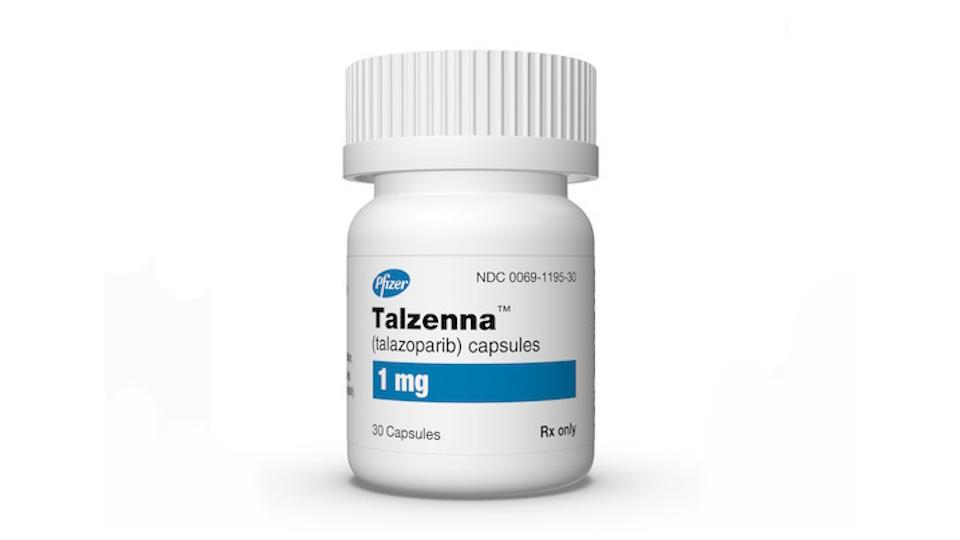Pfizer joins three-way PARP battle in prostate cancer

Pfizer has won FDA approval for its PARP inhibitor Talzenna in castration-resistant prostate cancer (CRPC) in a combination that it hopes will help it challenge AstraZeneca and Merck & Co’s market leader Lynparza.
The FDA has cleared Talzenna (talazoparib) alongside Pfizer’s well-established hormonal therapy Xtandi (enzalutamide) for the treatment of adults with homologous recombination repair (HRR) gene-mutated metastatic CRPC.
Lynparza (olaparib) has been approved for use in these patients since 2020, but Pfizer says Talzenna is the first drug in the PARP class to be authorised alongside Xtandi, a standard first-line therapy.
The approval stems from the TALAPRO-2 study, which compared Talzenna to placebo added to Xtandi and found a 37% improvement in radiographic progression-free survival (rPFS) with the PARP inhibitor group, and a 55% reduction in the risk of disease progression or death.
Pfizer has said the new indication is the key to unlocking $1 billion in annual revenues for Talzenna, which has so far played second fiddle to Lynparza in the market. The drug’s sales do not warrant a separate line in its financial reporting, while AZ and Merck’s drug raked in almost $4 billion last year.
Until now, Talzenna was approved for BRCA-mutated, HER2-negative advanced breast cancer only, while Lynparza’s label spans ovarian, breast, prostate, and pancreatic cancers, and the new approval gives it a chance to make up some ground.
AZ and Merck’s drug is, however, keeping its nose ahead of its rivals with approvals for a broader, all-comer population in metastatic CRPC based on interim results of the PROpel trial, which combined the PARP drug with Johnson & Johnson’s hormonal therapy Zytiga (abiraterone acetate), Xtandi’s main rival in the market.
Meanwhile, J&J is also harbouring aspirations in first-line advanced CRPC, recently getting EU approval for Akeega, a combination of its PARP drug niraparib and abiraterone acetate, in mCRPC patients with BRCA mutations. That approval was based on the MAGNITUDE study, which showed a 45% improvement in rPFS over Zytiga, and a trend towards improved overall survival.
“Despite treatment advancement in metastatic castration-resistant prostate cancer, the disease can progress quickly, and many patients may only receive one line of therapy,” said Neeraj Agarwal of the University of Utah, who was the lead investigator on TALAPRO-2.
“Therefore, new first-line treatment options are needed to reduce the risk of disease progression or death.”
Pfizer is also combining Talzenna and Xtandi in HRR-deficient metastatic castration-sensitive prostate cancer (CSPC) in the TALAPRO-3 trial due to read out next year. It acquired both drugs in 2016 as part of its $14 billion acquisition of Medivation.













